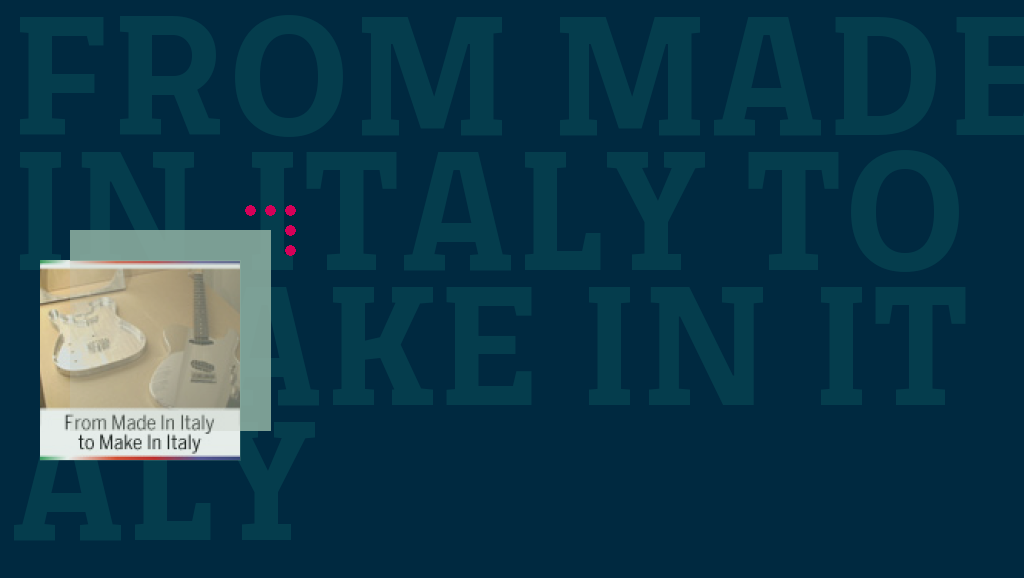To bring a close to our Innovating with Beauty tour we met in the Cannery, San Francisco, to discuss what has been termed ‘the octagon of artisanal values’ and in doing so to present the businesses that have accompanied us and been a part of our delegation for the past few days. Each one of these businesses has in common a connection to the growing makers movement and a desire to help bring to the foreground their talents and capacity for innovation. Who better than to sponsor this than Giorgio Merletti, President of the Confartigianato and therefore head of an organization that sports over 700,000 small businesses in Lombardy. Merletti finally sees in the new makers movements hope for the youths of today who are once again, after a generational gap, interested in the small artisan businesses and manual labour that is the substance of the maker. For him the continuation of the Italian artisan heritage is extremely important, both for the opportunities that it can give to young italians in a dire economic period, and for the capacity for innovation that said businesses can offer. The value of Italian artisans and craftsmen is beyond discussion and therefore the hope is that this set of events can bring a collaboration between the emerging Italian and American makers, so that both sides can benefit from what the other has to offer.
An excellent example of this drive is Zanobi. Presented by one of their founders, Roberto Scaccia, Zanobi is a startup that tries to connect designers and makers so that new networks can be formed. For Zanobi everyone is a maker, they merely need to realize their potential. Zanobi Travels, a section of the Zanobi business, allows individuals to travel to manufacturing plants and participate in the productive process, therefore experiencing first hand what it is to be a maker. For Zanobi what is unique about the italian maker movement is that it is embodied in medium sized businesses, which can be bracketed between the artisans of etsy.com and the large corporations. They are innovation with a human element at the centre. They represent the democratization of production and because of this networking becomes just as important as the very tools that are used to produce. The idea that networking is a necessary element in the makers revolution is also embodied in another startup: Slowd, presented today by Andrea Cattabriga. Once again this is a clear indication that for the makers revolution to take hold and for there to be innovation with beauty there must be vessels of communication and networking, something that both these companies are beginning to offer.
Blomming.com, presented by their CMO Alberto D’Ottavi, can be considered another link in this networking chain. Blomming allows you to sell on the internet and in particular on all social media platforms. This is the missing commercial link that is necessary for all makers so that they can appeal their products to an audience of potential buyers. The beauty of Blomming is that it can allow a small artisan producer to appeal to a huge audience across the world, and therefore harnessing the power of the internet, something that is often unavailable to the craftsmen that spend their time creating rather than selling.
With all this focus on networking it was also important to see an actual maker that embodied the values of innovating with beauty. Allessandro Liani from Videosystems has brought his family business into the present by introducing a novel idea into video surveillance cameras. To him surveillance cameras were, to put it simply, ugly. From this starting point he decided to produce surveillance cameras that are built in the forms of animals, so that beauty could be introduced into an object that is associated with other characteristics. This fenomenal idea is exactly what innovating with beauty is all about, bringing new technologies with a touch of design and beauty.
The startup companies presented all embodied the idea of creating for an end, of designing something and using technology so as to reach a desired goal. They were not just using or developing technology for the sake of technology, but harnessing its power so as to create goods and services that can actively forward innovation. This can, in some regards, be considered a cultural divide between the US and Italy, whereby it often seems as if in the US technology is an end in itself. The hope is that the future holds more businesses that innovate with a purpose and therefore with agency and responsibility. Initiatives such as that which we have been a part of in the past few days are a necessary tool towards this end. The Fondazione Bassetti, and in particular Ottavia Bassetti Boardmember of the Fondazione and mastermind behind our program, should be lauded. They have been capable of achieving their telos: uniting innovation with beauty and represent the first step in the makers revolution. What is important now is to continue this dialogue and collaboration so that what is to come is both beautiful and responsible.
———————–
















